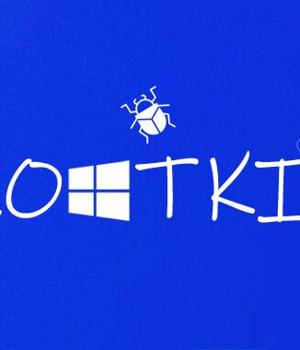Security News > 2021 > September > A New Bug in Microsoft Windows Could Let Hackers Easily Install a Rootkit

Security researchers have disclosed an unpatched weakness in Microsoft Windows Platform Binary Table affecting all Windows-based devices since Windows 8 that could be potentially exploited to install a rootkit and compromise the integrity of devices.
"These flaws make every Windows system vulnerable to easily-crafted attacks that install fraudulent vendor-specific tables," researchers from Eclypsium said in a report published on Monday.
WPBT, introduced with Windows 8 in 2012, is a feature that enables "Boot firmware to provide Windows with a platform binary that the operating system can execute."
Given the functionality's ability to have such software "Stick to the device indefinitely," Microsoft has warned of potential security risks that could arise from misuse of WPBT, including the possibility of deploying rootkits on Windows machines.
"Because this feature provides the ability to persistently execute system software in the context of Windows, it becomes critical that WPBT-based solutions are as secure as possible and do not expose Windows users to exploitable conditions," the Windows maker notes in its documentation.
In response to the findings, Microsoft has recommended using a Windows Defender Application Control policy to tightly control what binaries can be permitted to run on the devices.
News URL
Related news
- Microsoft: Windows Server 2025 restarts break connectivity on some DCs (source)
- Microsoft: New Windows updates fix Active Directory policy issues (source)
- Microsoft tells Windows users to ignore 0x80070643 WinRE errors (source)
- Microsoft: Some devices offered Windows 11 upgrades despite Intune blocks (source)
- Microsoft fixes Windows Server 2025 blue screen, install issues (source)
- Microsoft fixes Remote Desktop freezes caused by Windows updates (source)
- Russian Hackers Exploit Microsoft OAuth to Target Ukraine Allies via Signal and WhatsApp (source)
- Hackers abuse OAuth 2.0 workflows to hijack Microsoft 365 accounts (source)
- Microsoft pitches pay-to-patch reboot reduction subscription for Windows Server 2025 (source)
- Microsoft: Windows Server hotpatching to require subscription (source)